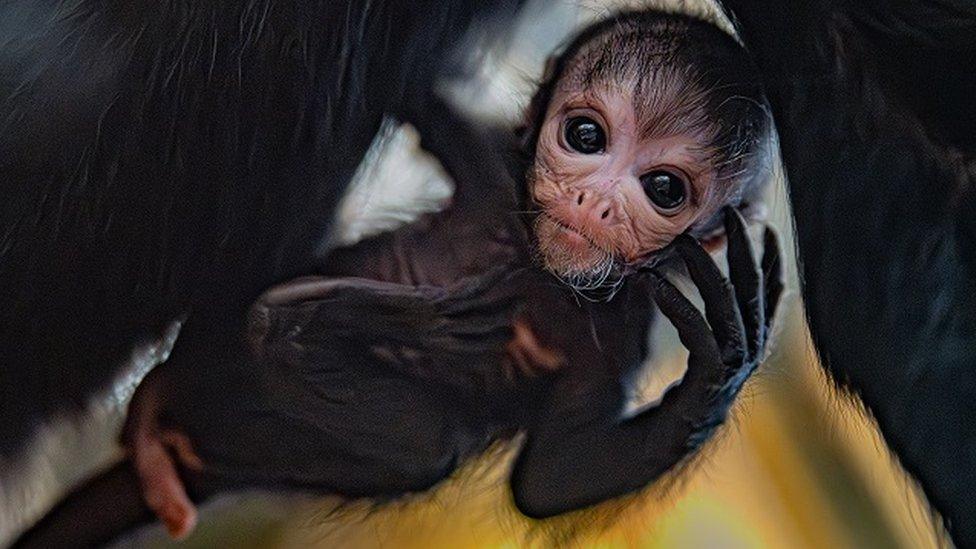Breeding hope as rare giant otter arrives at zoo
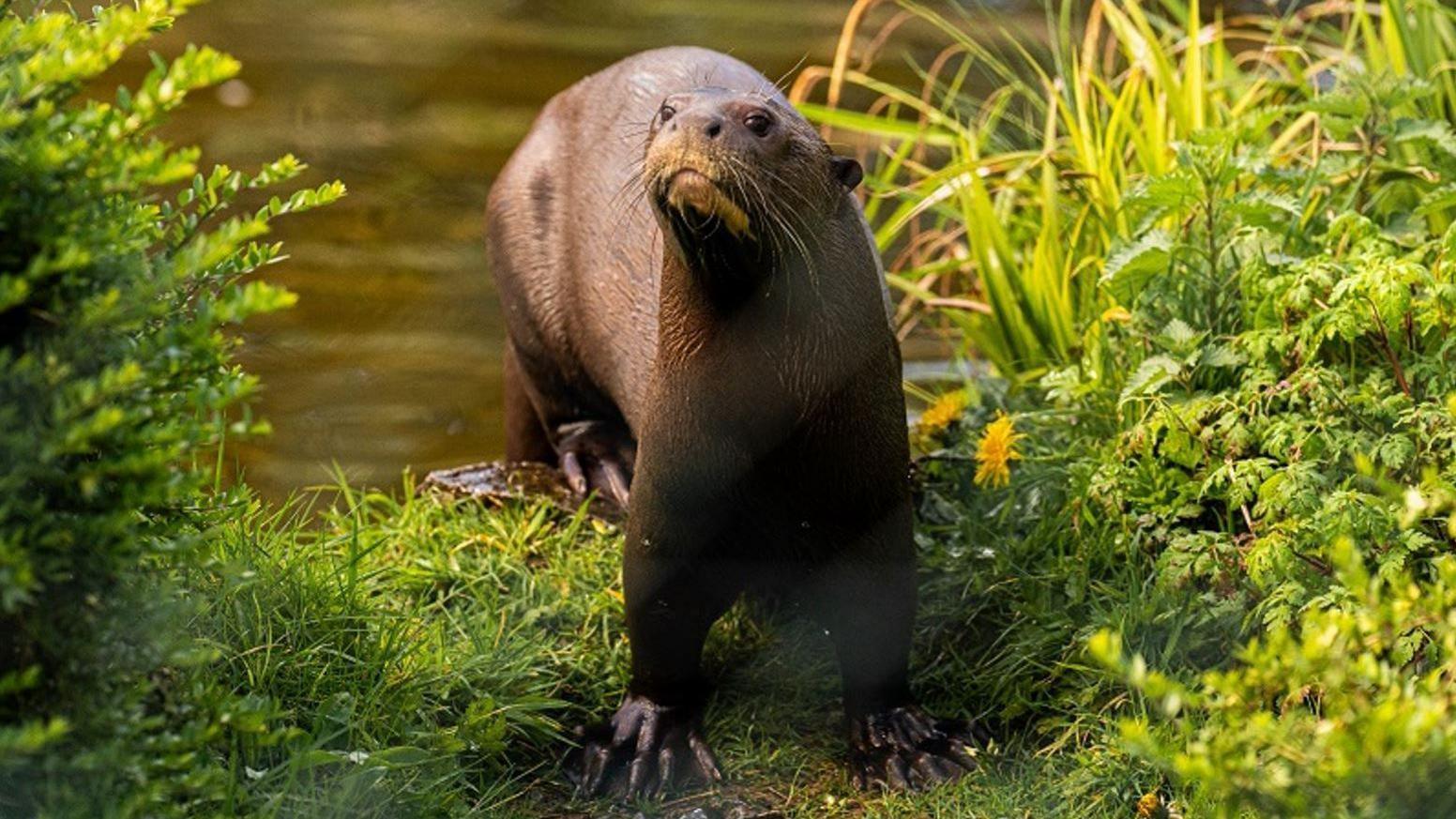
Giant otter Manú has arrived from Budapest Zoo after being matched with Chester's Tibiri
- Published
A rare male giant otter has arrived a zoo as part of an international breeding programme to protect the endangered species from extinction.
The three-year-old, named Manú, has been selected as the perfect genetic match for Chester Zoo's female, eight-year-old Tibiri.
It is estimated no more than 5,000 giant otters remain across South America and the species has already been wiped out in Uruguay and Argentina.
Anna Starkey, carnivore keeper at Chester Zoo, said the pair had "instantly bonded".
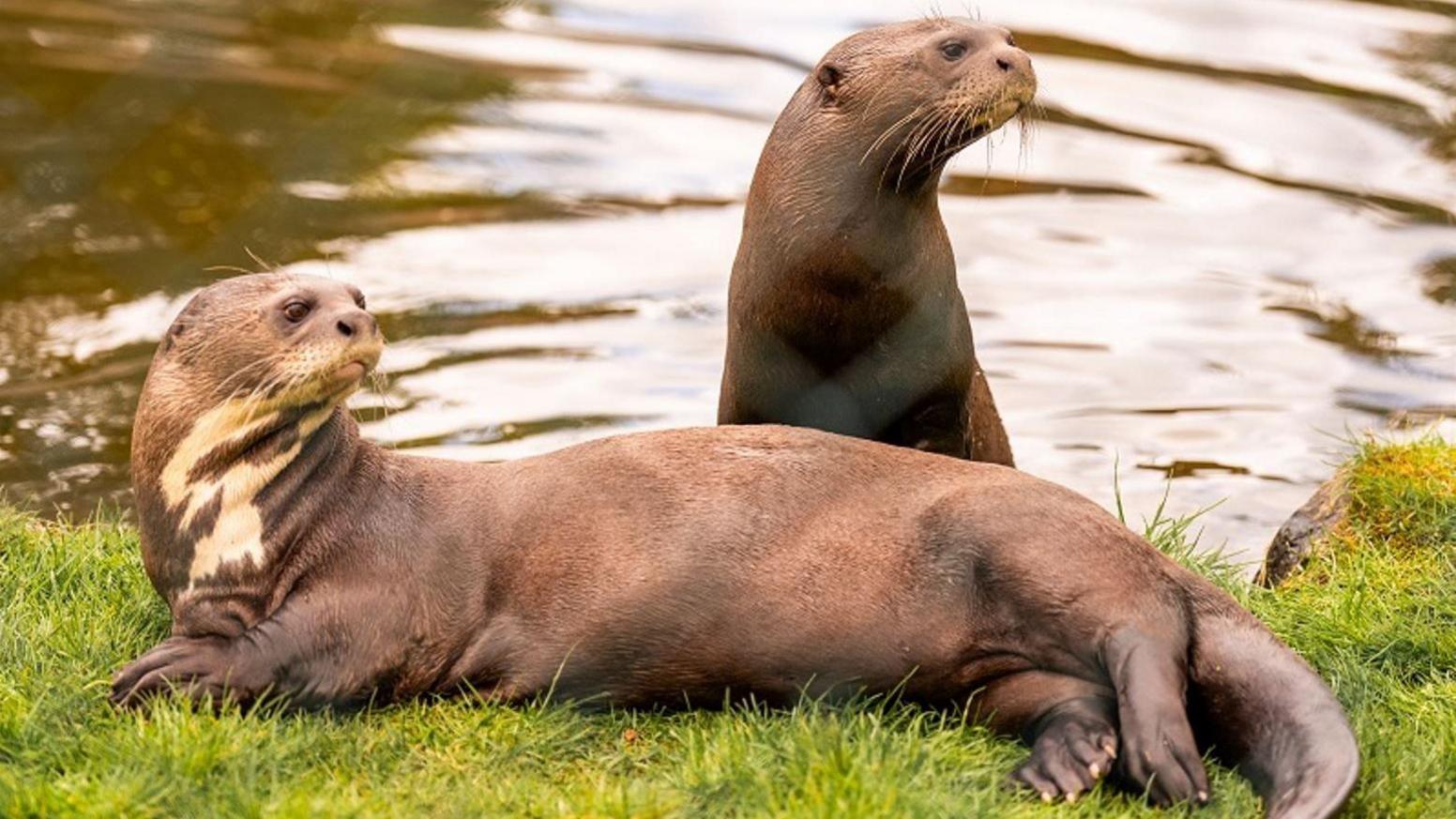
The zoo said Manú and Tibiri had "instantly bonded"
Giant otters play a crucial role in maintaining the balance of freshwater habitats by hunting prey populations and keeping the health and biodiversity of their environments in check, Ms Starkey said.
They are the largest of all otter species, with a long, streamlined body and webbed feet for swimming.
The International Union for the Conservation of Nature, has now listed the species as endangered which means it faces a very high chance of becoming extinct in the future.
"Sadly, the wild population feels enormous pressures from pollution and mass deforestation which continue to threaten its survival altogether," Ms Starkey said.
“It will now be the role of conservation zoos like ours to play a pivotal role in turning the tide and safeguarding their future on the planet.”
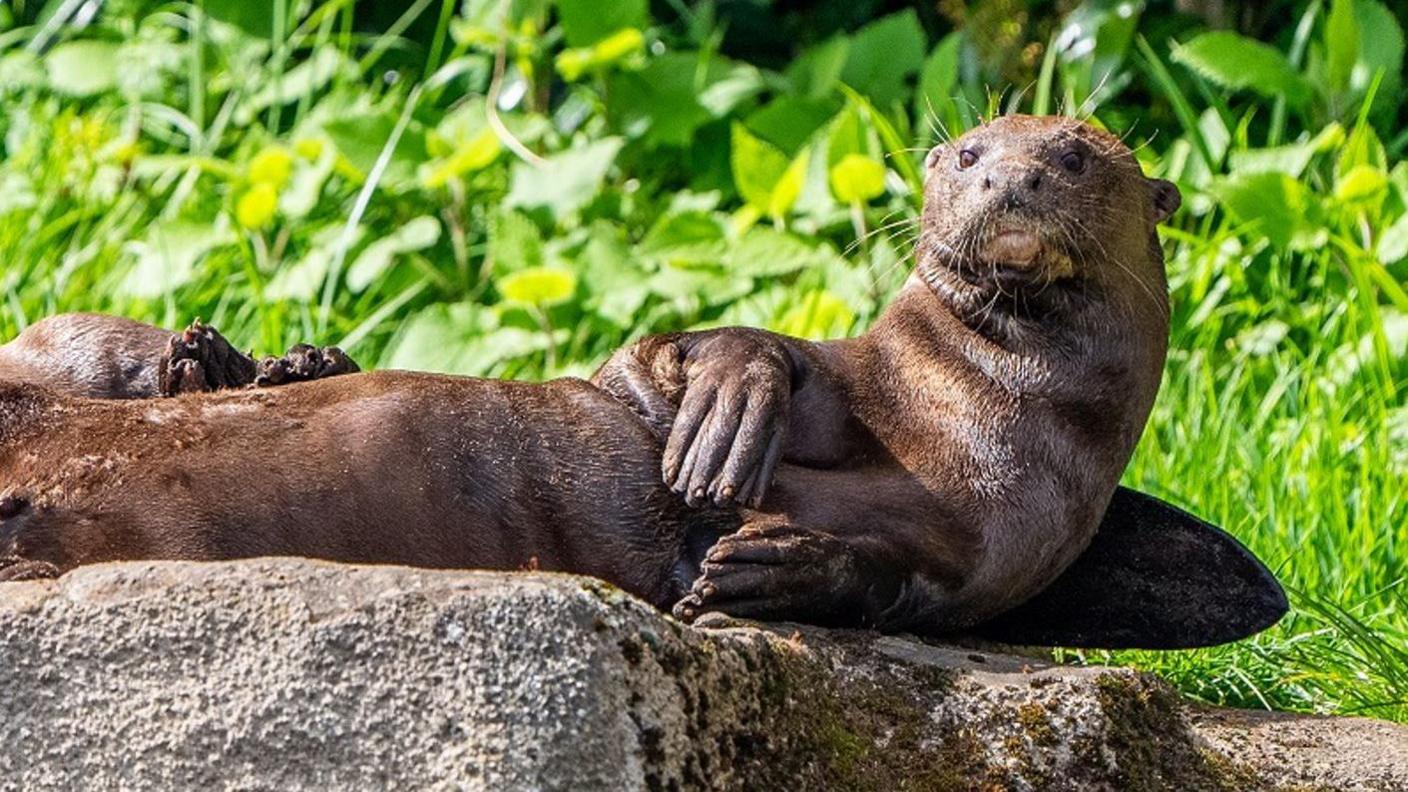
It is estimated no more than 5,000 giant otters remain across South America
Manú, who has travelled from Budapest Zoo, was matched with female Tibiri, based on his important genetics, age and character and the zoo said he had settled into his new surroundings "very quickly".
"So far we’ve seen really positive signs between the two and they can be heard using a range of vocalisations while playfully swimming together, which shows us that they’ve instantly bonded," Ms Starkey said.
"We’re hopeful that, in their own time, they’ll eventually go on to have pups and help boost global giant otter numbers."
Listen to the best of BBC Radio Merseyside on Sounds and follow BBC Merseyside on Facebook, external, X, external, and Instagram, external? You can also send story ideas to northwest.newsonline@bbc.co.uk, external
Related topics
- Published5 April 2024
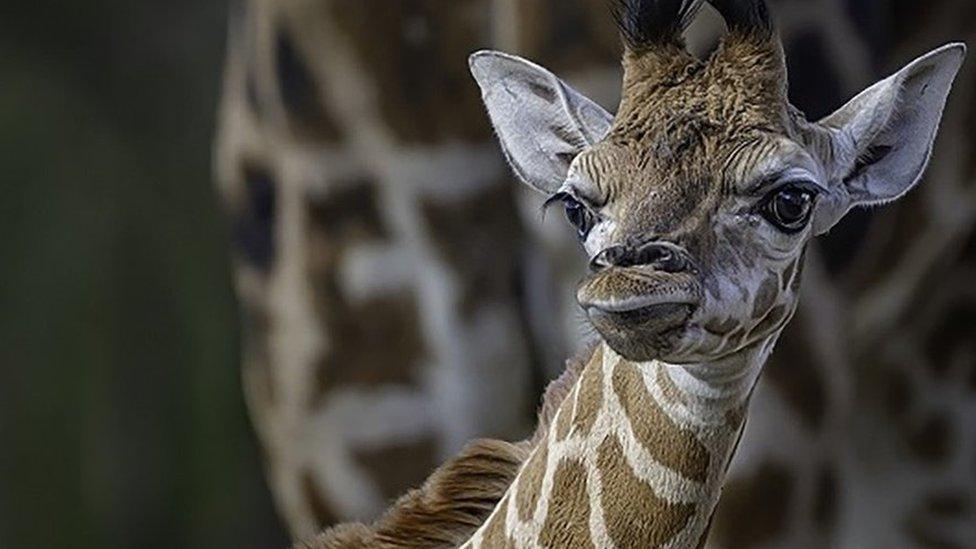
- Published21 March 2024
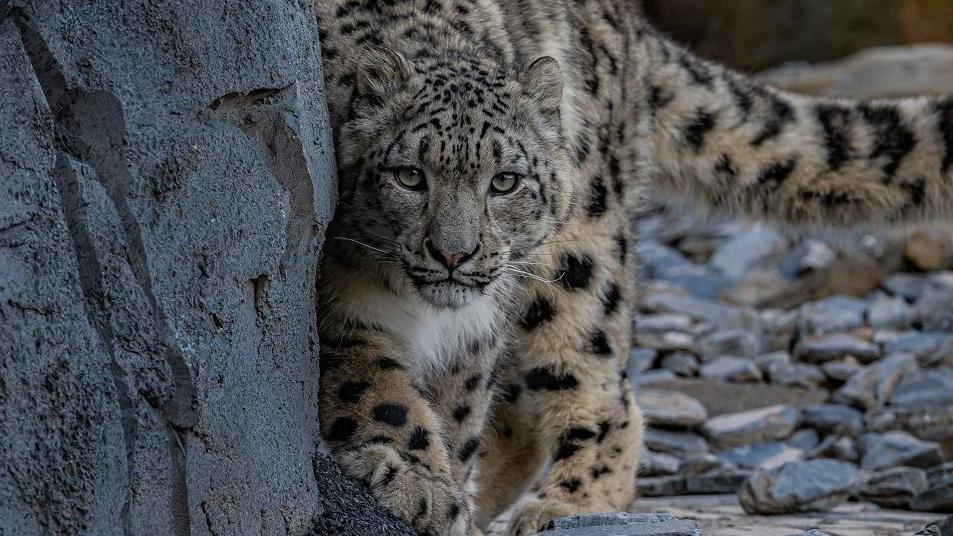
- Published16 February 2024
